Worried your eggs might be expired? Don’t crack one open just yet! Eggs can stay good for weeks beyond the sell-by date if stored properly—but it’s important to know when they’ve gone bad. This human-friendly guide, made for U.S. households, shows how to tell if eggs are still safe to eat, with visual tips and simple size references.
1. Check the Expiration Date
Start by looking at the carton:
- Sell-By Date: Eggs can often be safe for 3–5 weeks past this date if refrigerated.
- Pack Date (Julian Code): A three-digit number from 001 (Jan 1) to 365 (Dec 31). This shows the packaging day.
➡ Pro Tip: Eggs stored at 40°F (4°C) or below can last 4–5 weeks from the pack date.
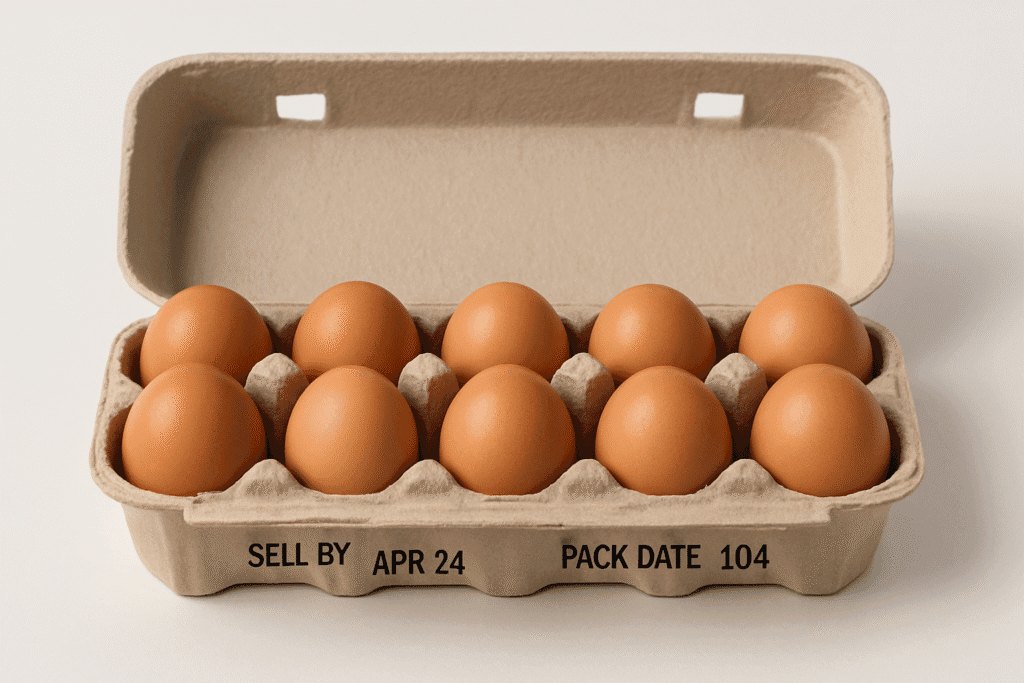
2. Do the Water Float Test
This is a quick and popular way to test egg freshness:
Steps:
- Fill a bowl with cold water (at least 4 inches deep).
- Gently place the egg in the water.
➡ Results:
- Sinks & lays flat: Fresh (0–10 days old)
- Sinks but stands upright: Still safe, but not super fresh (10–21 days old)
- Floats: Bad — toss it!
➡ Visual Tip: Include diagram showing eggs sinking/standing/floating in a bowl.
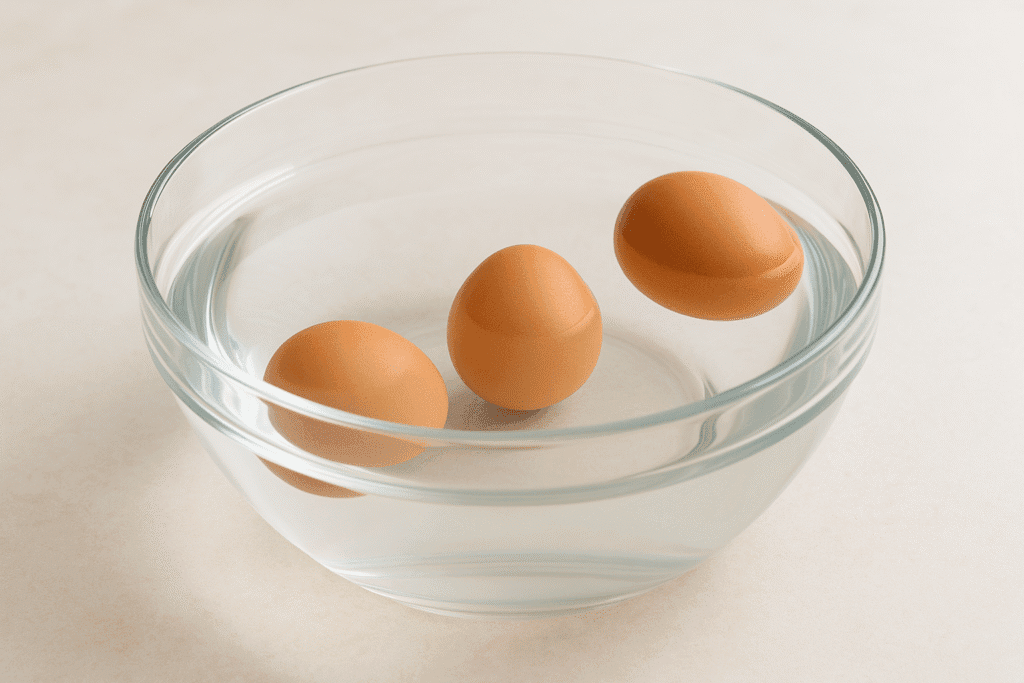
3. Shake Test (Sound Check)
Hold the egg next to your ear and shake it gently:
- No sound: Fresh
- Sloshing sound: The yolk and white have thinned — likely bad.
➡ Size Note: A U.S. large egg is about 2.25 oz (63 grams). As they age, air cells grow, making the sloshing sound more likely.
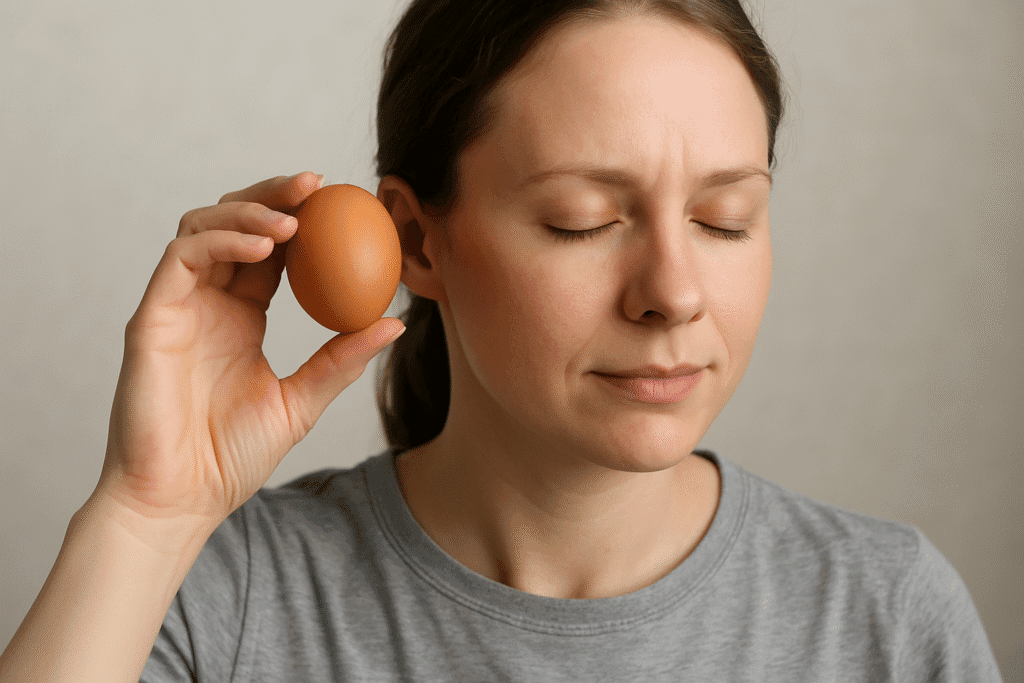
4. Crack It Open (Only If Needed)
Crack the egg into a bowl, not directly into your dish:
- Fresh Egg: Yolks are round and firm; whites are thick and don’t spread much.
- Bad Egg: Watery whites, flat or broken yolk, unusual color (pink, green, or black).
➡ Smell Test: A bad egg smells terrible—sulfur-like or rotten.
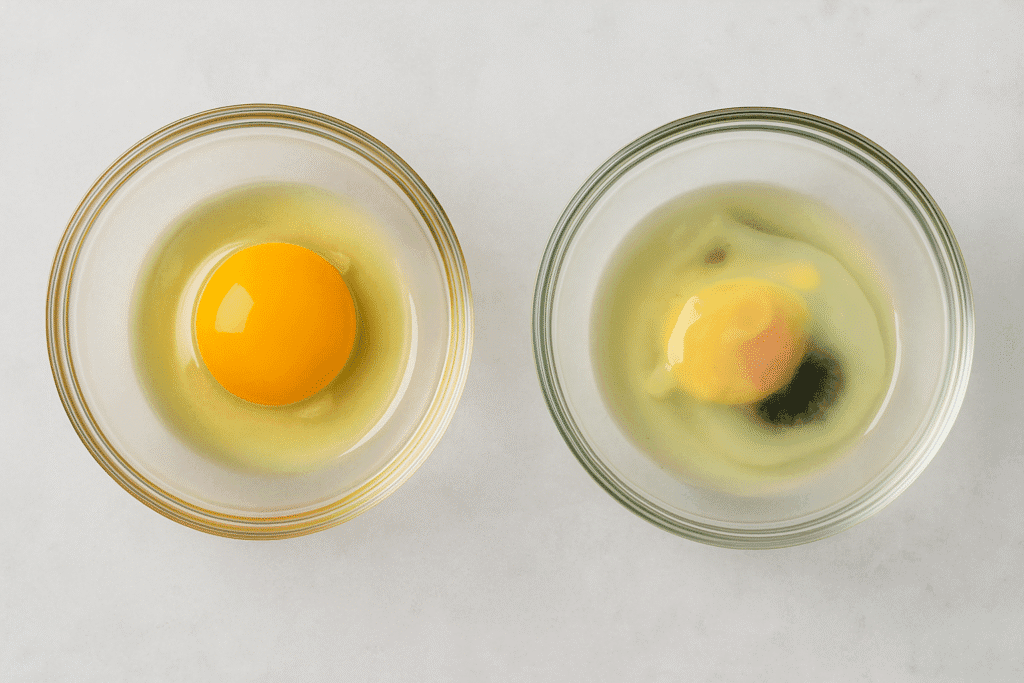
5. Visual Inspection of the Shell
Before anything else:
- Check for cracks or slimy film.
- Mold spots or powdery residue? Discard it.
➡ Visual Tip: Side-by-side comparison of clean vs. suspicious-looking shells.
Storage Tips for Egg Safety
- Always refrigerate eggs at or below 40°F (4°C).
- Store in the original carton (not in the door) to prevent temperature changes.
- Use older eggs for baking and fresh ones for frying or boiling.
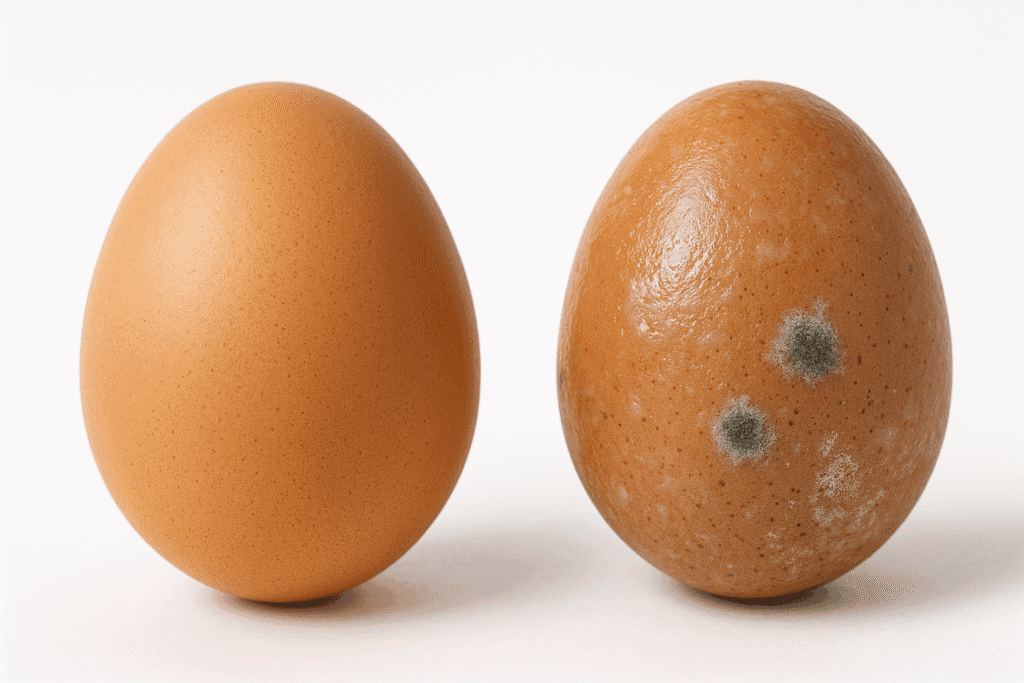
Final Thoughts
Eggs are a staple in most U.S. kitchens—but checking their freshness can protect you from foodborne illness. Use the float test, smell check, and visual cues to decide if your eggs are still good. When in doubt, throw it out!
Stay safe, and keep your fridge egg-smart!
